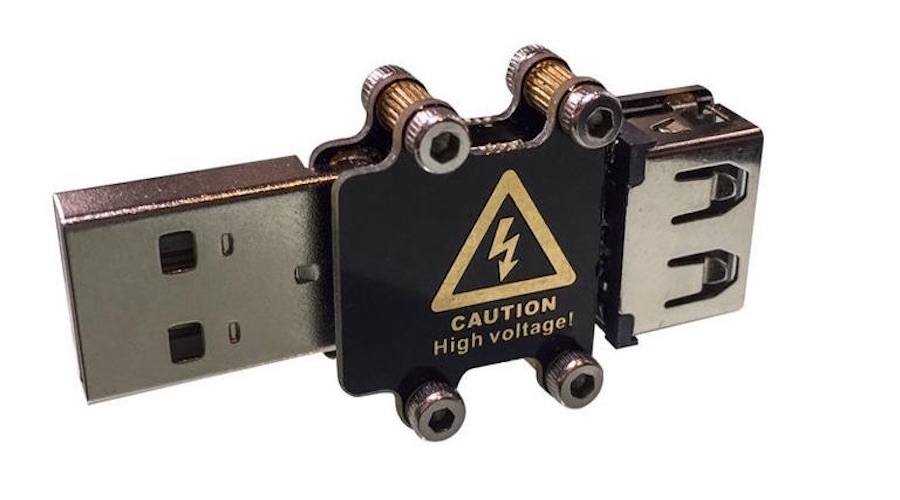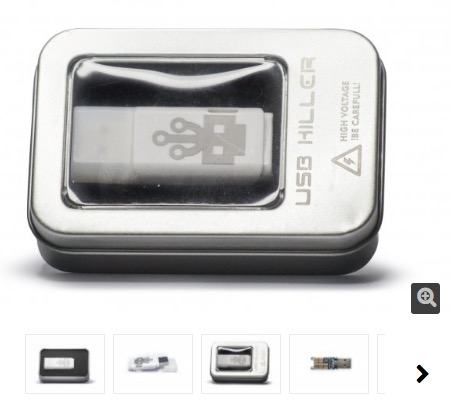This Ruthless USB Killer Can Give Your PC A Painful Death, Now Up For Sale

Short Bytes: The USB Killer stick that made headlines last year for being a brutal death to your innocent hardware is now up for sale in its upgraded USB Killer V2.0. The killer USB, priced at $49.95, can electrocute your device with 240 volts until it dies.
There are another kind of ruthless USB Killer drives which can kill your computer or any hardware device with a USB port almost instantly and that too painfully. Last year, we heard about a USB Killer prototype and the USB Killer v2.0 testing. Now, the USB Killer V2.0 has become powerful than ever and is available on usbkill.com at a cost of $49.95.
The USB Kill V2.0 can permanently damage any device with a USB port, e.g., a computer, laptop, DVR, television, etc. An important point to consider is that the USB Kill is not made to serve any evil intention. Instead, it’s a power surge test device that can be used by hardware developers to observe the effects of such a disastrous thing on their hardware.

When the USB Kill stick is connected to the USB port of a device, it charges itself using the 5V power line until the voltage value reaches 240V. It then discharges itself into the data lines of the USB port causing a power surge leading to malfunctioning of the device. The charge and discharge cycle repeats until the USB Kill is removed from the device.
Almost 95 percent of the devices couldn’t stand in front the USB Killer V2.0 during the tests, says the company. However, the latest MacBooks were the only devices which weren’t affected by the USB Killer v2.0 stick.
If you want to test your hardware but don’t want to burn your device, the company has made a USB Killer Tester which protects your hardware when the USB Kill stick is used to test its surge protection capabilities. The Tester Shield also doubles up as a data protection tech. It prevents juice jacking data thefts when your device is connected to a USB port. The is available at $13.95.
If you have something to add, tell us in the comments below.
Also Read: USBee — Malware That Uses Any USB Drive To Hack Isolated Computers






